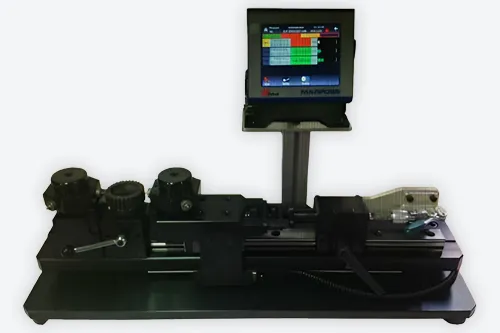News & Insights
Industries Using Gauges and the Role of Precision Measurement in Manufacturing

Industries using gauges rely on precision measurement to maintain quality, ensure compliance, and keep production running efficiently. Gauging is essential across a wide range of sectors from aerospace and automotive to medical devices and electronics. Each has their own standards, environmental factors, and dimensional challenges.
This overview explores how various industries use gauges, what types of measurement tools are common, and why customization is often required today.
Industries Using Gauges Depend on Accuracy and Repeatability
In modern manufacturing, precision is often a regulatory or functional requirement. Industries using gauges do so to control tolerances, validate part conformity, and reduce variability. Whether the operation involves mass production or specialized prototyping like Veit Tool produces, gauges help verify that components meet exact specifications.
These tools are used to:
- Check internal and external threads
- Verify bore sizes and diameters
- Monitor surface finishes
- Ensure part interchangeability
- Support documentation for audits and certifications
While some applications can be met with standard tools, many industries using gauges require custom or modified solutions that match unique geometries, materials, or production conditions.
Aerospace and Automotive: Industries Needing Tight Tolerances and Documentation
In both aerospace and automotive manufacturing, gauges must meet high standards of accuracy and documentation.
Aerospace Applications
- Gauges are used for threaded fasteners, fuel system fittings, engine parts, and structural components.
- Parts often need to conform to NAS or AS standards.
- Traceability and documentation to AS9100 or NADCAP requirements are standard.
Automotive Applications
- Gauges are common in engine, drivetrain, and chassis production.
- Thread plug gauges, ring gauges, air gauges, and custom fixturing are widely used.
- Compliance with IATF 16949 is often expected.
In these industries, performance under stress, repeatability in high-volume settings, and traceable calibration are critical factors.
Medical Manufacturing: Gauging for Small-Scale, High-Stakes Parts
Medical device manufacturing is another area where industries using gauges must ensure dimensional perfection. Surgical tools, implants, diagnostic components, and housings are often machined to extremely tight tolerances.
Key requirements include:
- Micro-thread and small-diameter inspection
- Surface finish verification
- Complete traceability for FDA and ISO 13485 standards
Gages used in this environment are often custom-built to inspect features that are too small or complex for standard tools.
Defense and Firearms: Precision Under Government Oversight
The defense industry, and adjacent sectors such as firearms manufacturing, also falls under the category of industries using gauges where reliability and repeatability are non-negotiable.
Applications include:
- Chamber gages for firearms
- Thread gages for military connectors and defense-grade hardware
- Compliance with NATO or MIL-SPEC dimensions
These gauges must not only meet precise dimensional targets but also perform reliably in rugged environments. Documentation and material certifications are often required to meet government procurement standards.
Heavy Industry and Energy: Gauging in Harsh Environments
Industries such as mining, construction, power generation, and oil and gas use gauges in more physically demanding settings.
Typical gauging needs include:
- Large-diameter thread inspection for pipes, flanges, and couplings
- Tools that resist corrosion, thermal cycling, and abrasion
- On-site calibration options and rugged transport cases
Here, the gauges must be durable and reliable, even in uncontrolled environments where access to precision lab conditions is limited.
Electronics and Telecommunications: Industries Using Gauges for Micro Precision
Electronics and telecommunications manufacturing relies on gauging for small, intricate parts such as connectors, pins, and signal-path components.
Common gages in this space:
- Thread plug and ring gages for connectors
- Custom forms for high-frequency signal applications
- Pin gages for small feature verification
Precision is essential, as even slight dimensional inconsistencies can cause performance issues or signal loss.
Why Customization Matters for Industries Using Gauges
While standard gages are suitable for many applications, industries using gauges often face challenges that require more tailored solutions:
- Parts with unusual thread profiles or compound geometries
- Materials that deform under standard gaging pressure
- Features located in hard-to-access areas
- Production environments with temperature or cleanliness constraints
As a result, many manufacturers work with gauge makers that offer customization, traceability, and engineering support to ensure tools align with their specific needs.
Industries Using Gauges Require More Than Just Measurement
Whether the focus is regulatory compliance, functional reliability, or production efficiency, industries using gauges depend on high-quality, accurate, and purpose-fit tools. The type of gauge, the inspection method, and the documentation standards vary by sector, but the need for precision remains constant.
Manufacturers across aerospace, automotive, medical, defense, energy, and electronics continue to evolve their gauging strategies as part complexity increases and tolerance windows shrink, making the role of well-designed measurement tools more important than ever.
In need of a specialized prototype gauge? Contact Veit Tool today and together we can build a solution.
Stay Connected with Veit Tool!
Get company news and expert industry insights — spam-free and straight to your inbox. Sign up today!
Contact Us
(810) 658-4949
Send an Email
Headquarters
303 S. Dayton St.
Davison, MI 48423
Business Hours
Mon-Fri, 7:00am - 3:30pm
We're Hiring!
View Job Openings >




